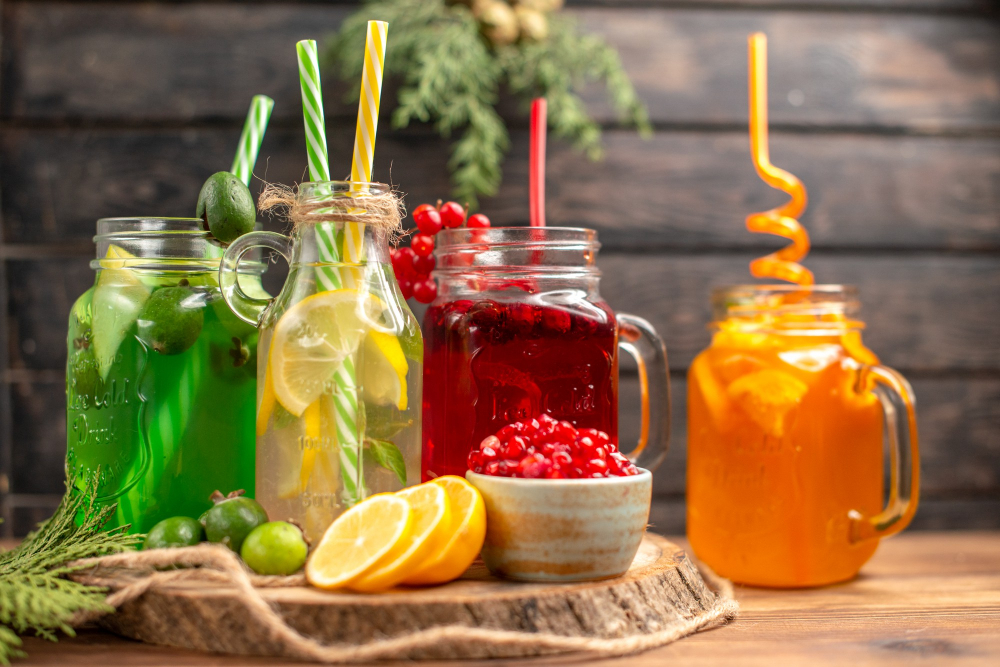The administration of juices has been synonymous with taking fruits and vegetables in one sitting for so many years. Of course, with shelves filled with brightly labelled bottles and claims of the health benefits of the beverages, many turn to juices for a fix. But are the perceptions of juices the truth that they appear to be? It is time to release the screws on the facts.
The Juicy Appeal
Today, juicing can be associated with health and fitness; many people claim that it is one of the most effective means towards detoxification. It applies here, depending on who wouldn’t rather take a glass of pleasant-tasting, slightly tart juice over munching through a bowl of raw kale? Besides, the concept of achieving improved health by swallowing something is very appealing, particularly in the modern world that is synonymous with time deficiency.
Nutrient Density: The positive and the negative sides.
I will like to state that juices have their merits. Juice that is freshly prepared contains more of the vitamins, minerals, and antioxidants of the fruits or vegetables used in preparing it. They can enhance the body’s immune response, aid in digestion, and serve as a source of energy in the shortest times.
However, there’s a catch. Juicing has the disadvantage of eradicating the fiber present in whole fruits and vegetables, as a result of the juicing process. Dietary fiber has significant roles in controlling the blood sugar level, digestion, and making one feel full. The problem arises when there is no fiber content; then the natural sugar within the juice will rapidly increase one’s glycemic index, and if the juice contains fruits predominantly, the user will soon find themselves crashing.
Store-Bought vs. Homemade: What’s Really in Your Glass?
As much as one wants to believe that all juices are the same, there is a lot that sets one juice apart from another. Convenient vegetable and fruit juices purchased at stores have a downside – manufacturers may add various extras. Most of the commercial juices today are heat processed to increase their shelf life; this process can also degrade heat-sensitive nutrients. Further, these juices might contain added sugars, artificial flavours or preservatives, making what one compares to a healthy option a sugar-filled drink.
The Caloric Dilemma
Assessing calories in a juice glass is no rocket science. Like, for example, a glass of orange juice can contain the juice of 4 plump oranges, which can stuff you with calories in just a few sips. These calories do carry some nutritional value; nonetheless, they cannot be compared to consuming fruits as a whole. They lack the satisfaction of eating whole fruits, possibly resulting in overeating the same day.
Juicing for Weight Loss – The Ups and Downs
Detoxification and juice cleansing have gained a rising popularity as instant remedies for weight loss. Though they may give short-term results, they are not sustainable for the long run and cause nutritional deficiencies. The absence of essential nutrients like fiber, fats, and proteins may leave one to be hungover, mood swing, and give a sense of tiredness all the time.
Furthermore, intense juice diets reduce metabolic rate, which is a hindrance to long-term weight loss in the long run. The instant weight loss noted in those who follow juice cleansing is usually due to water loss rather than fat loss, which is docile.
A Smarter way of Approach
Should you quit juices comprehensively? Not necessarily. Anything when enjoyed in moderation or a certain limit can be beneficial. Alternatively, treat juice as a supplement rather than a staple. Pair it with a high-fiber meal or snack to stabilize blood sugar levels. And remember, whole fruits and vegetables should always be your go-to for maximum nutrition.
For healthy juices and nutritious meals, visit the best aesthetic cafe in Hyderabad and immerse yourself in a culinary experience.




